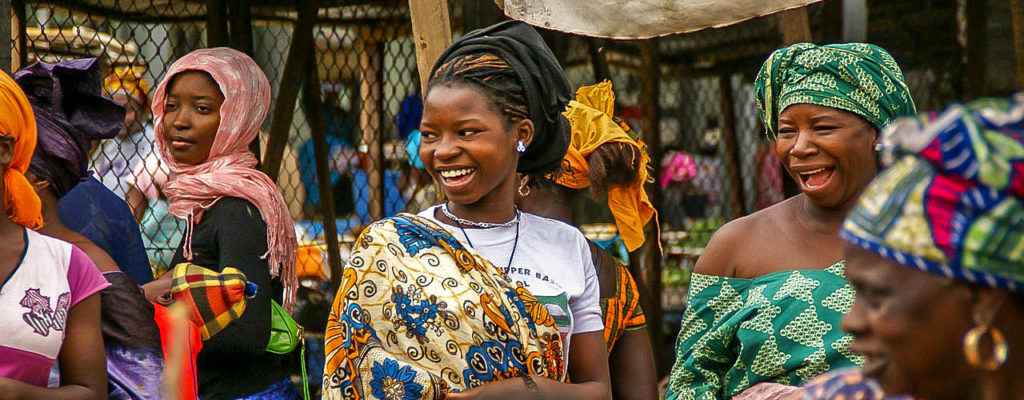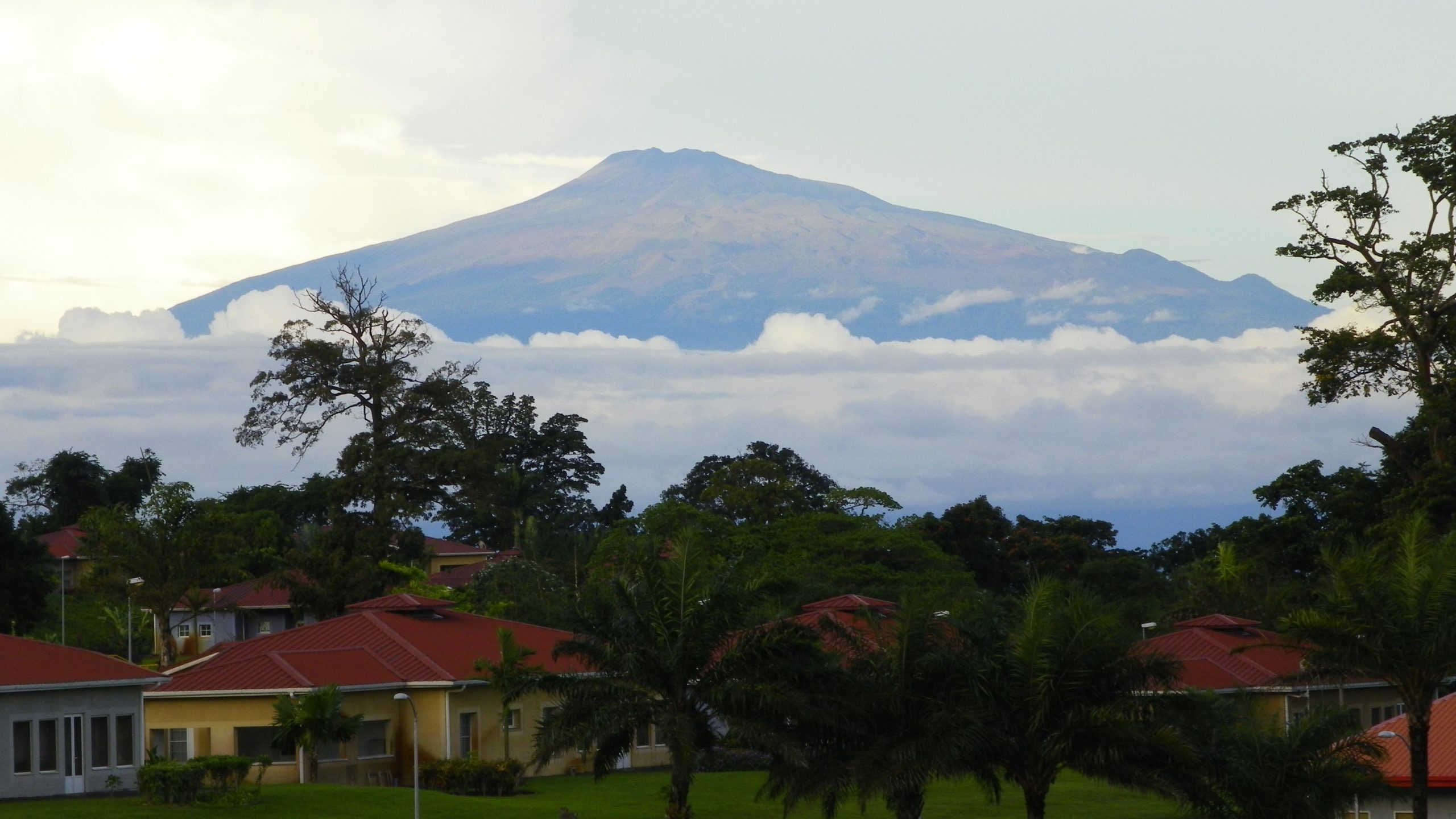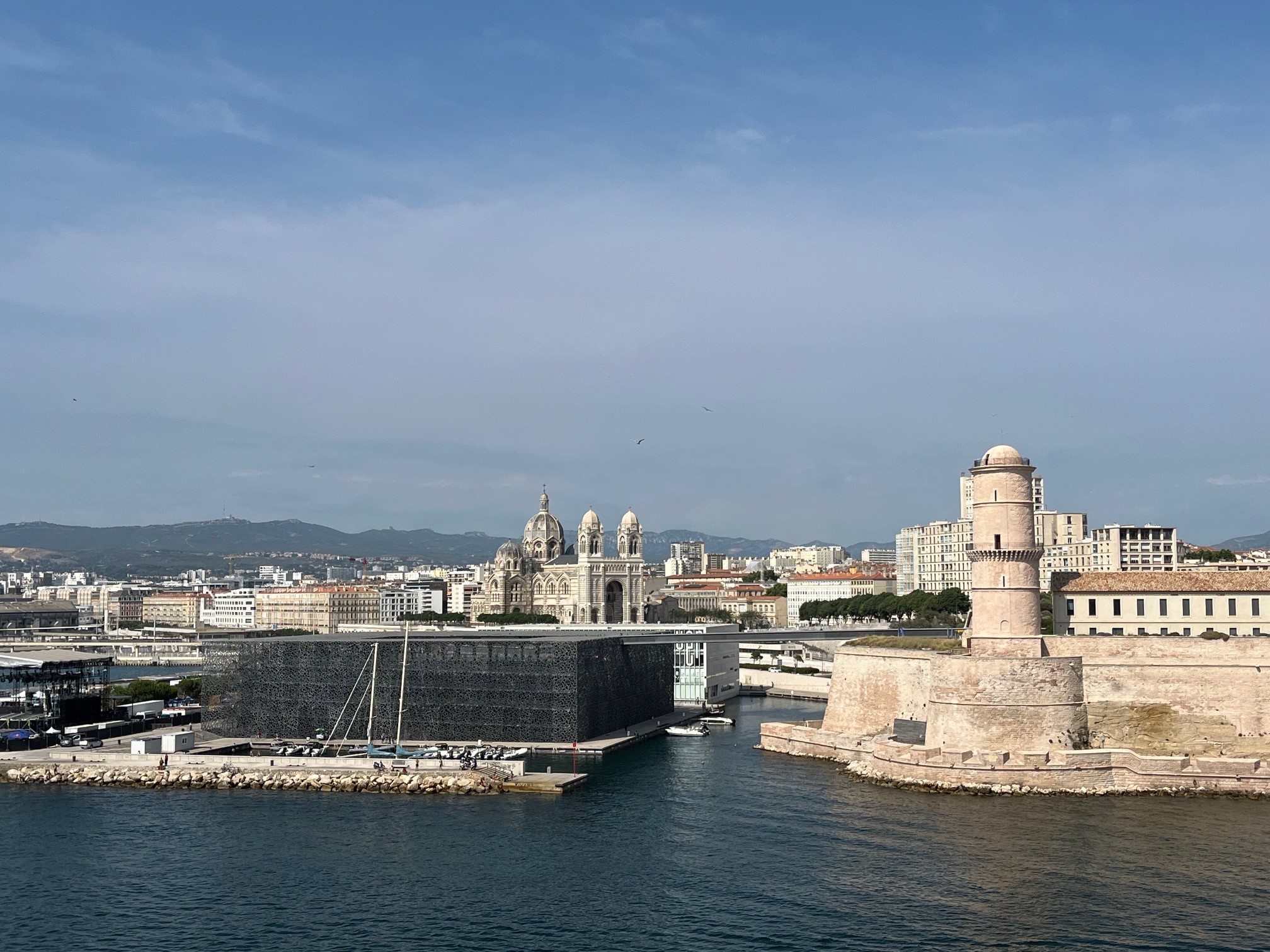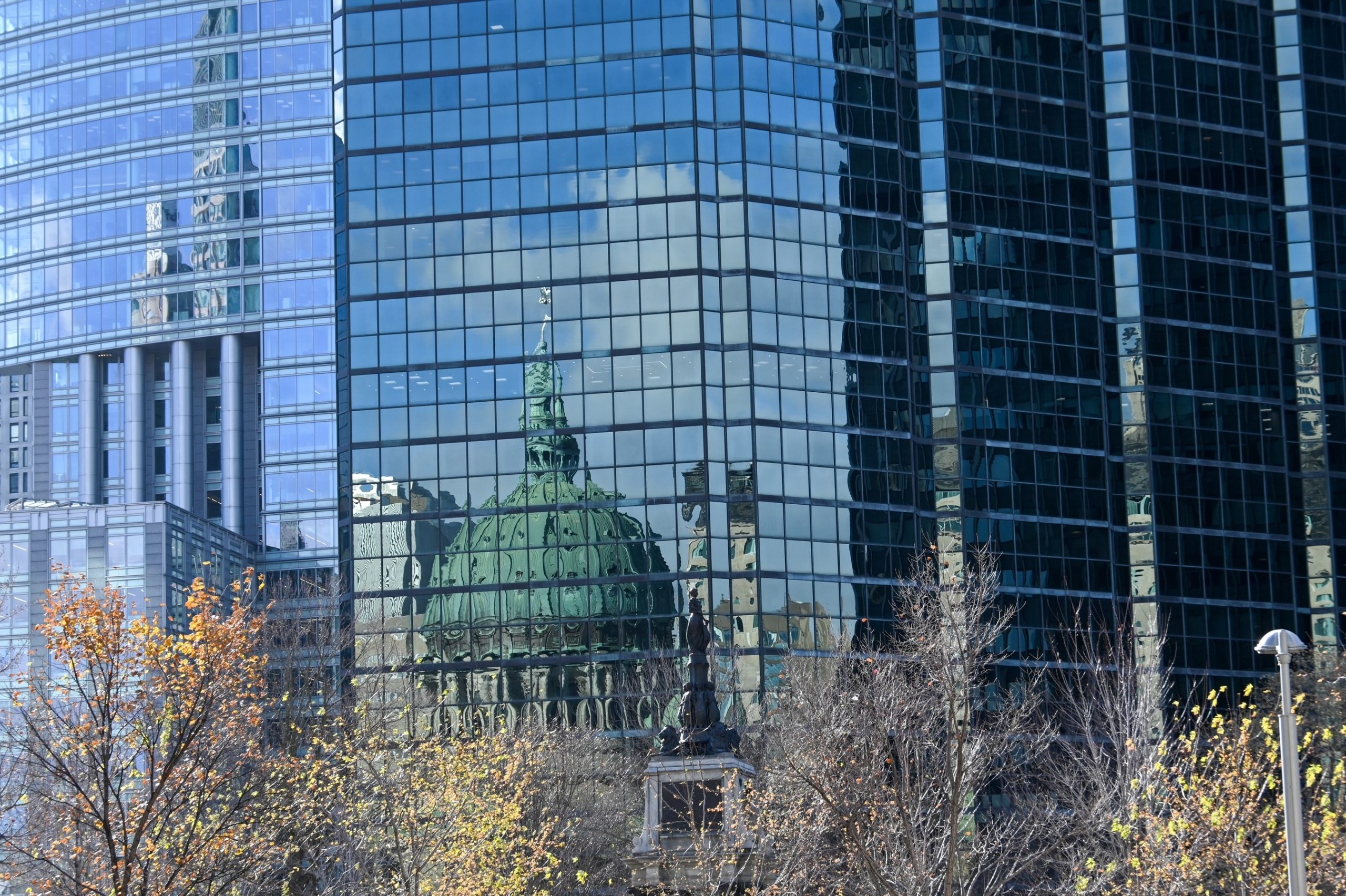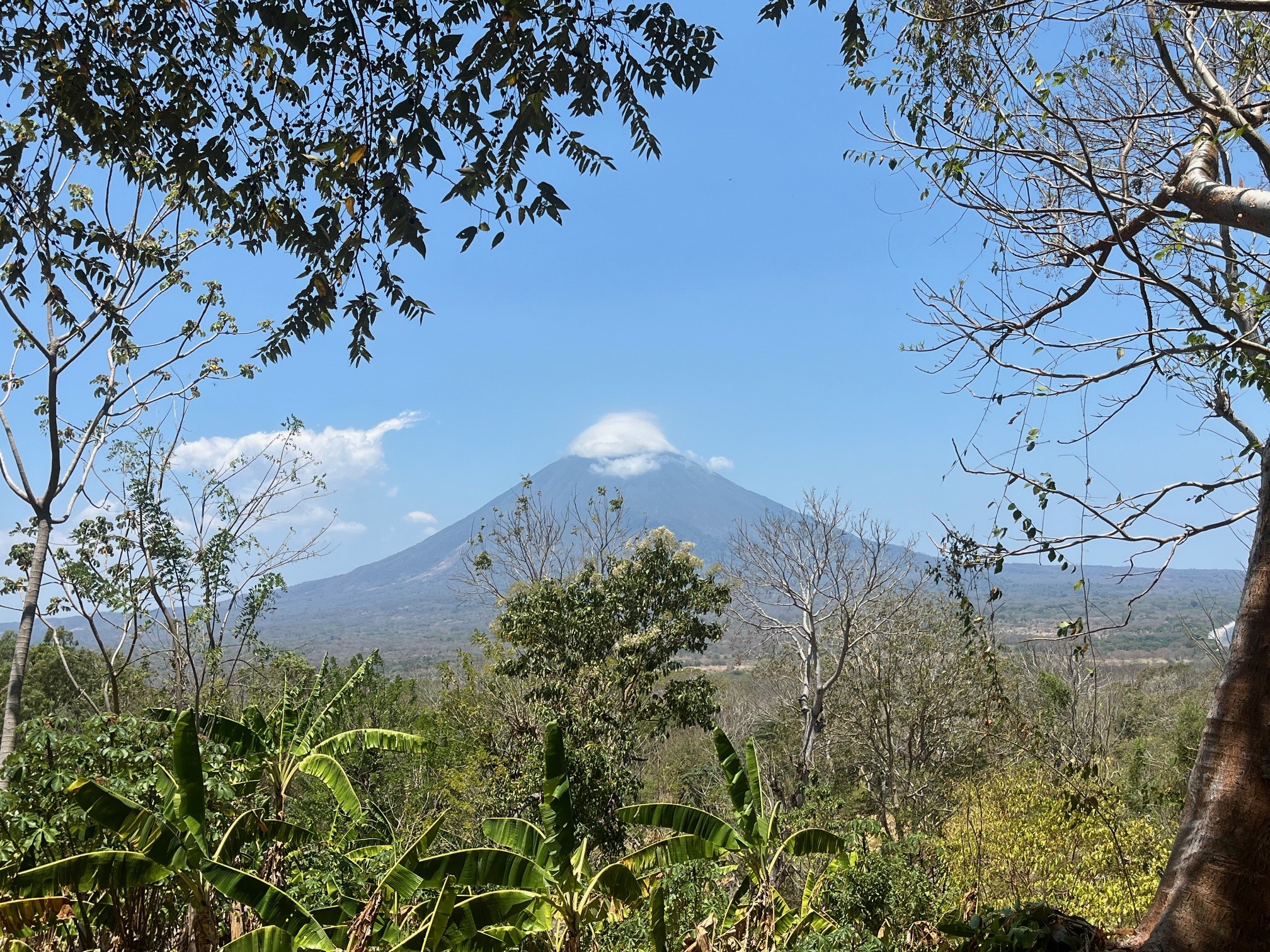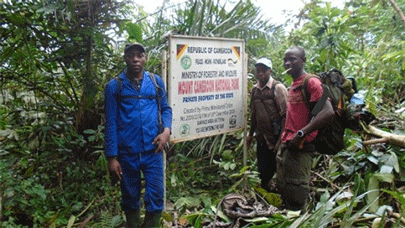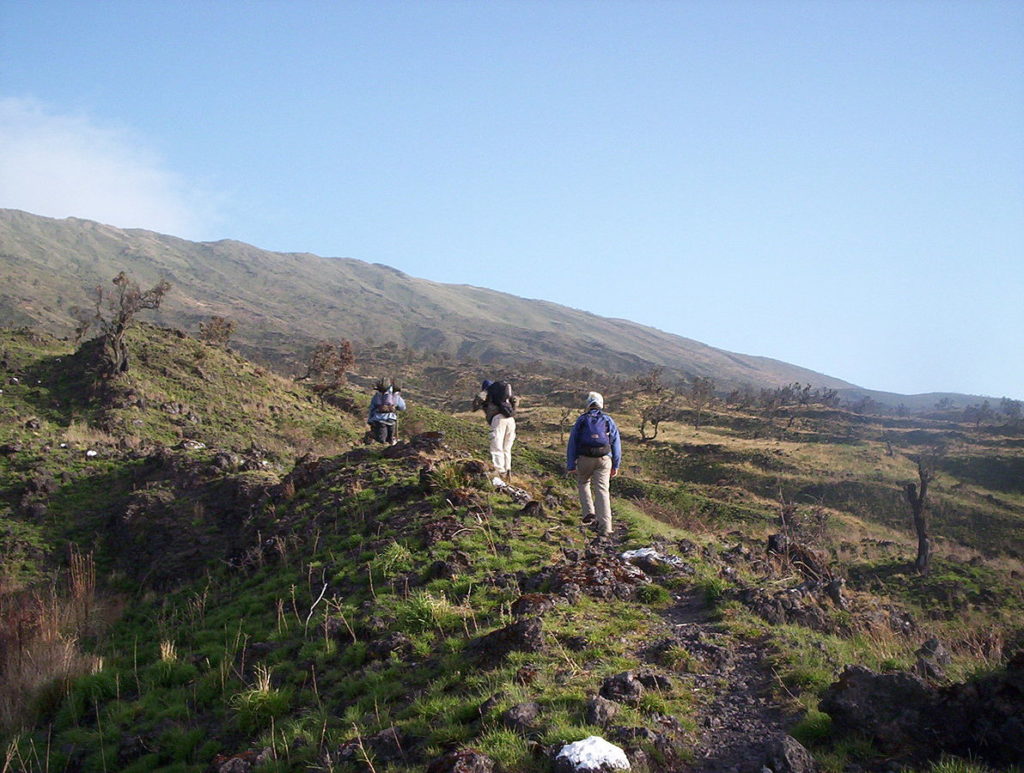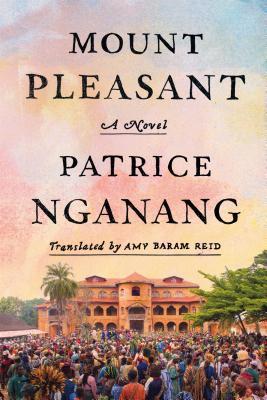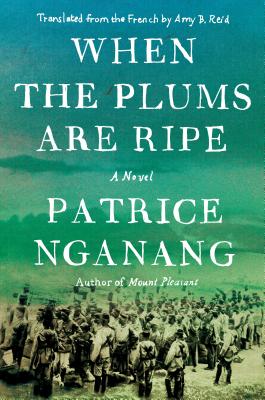I had just landed for the first time in Cameroon at Douala airport, a Friday evening. Before working the following week in Yaoundé, I had organized to go during the weekend on top of Mount Cameroon, a 4040m high volcano, the highest point of West Africa. Arriving from the airport in Buea, the city at the foot of the volcano, I was surprised to see advertising billboards in English. In an instant, I was reminded that Cameroon is a bilingual country: French and English are the two official languages and English is the main language in the Southwest and Northwest regions. On the way to Mount Cameroon, leaving Buea, one also walks along the former residence of the German Governor. The country was indeed a German colony, and Buea its capital city from 1901 to 1919, before France and Great Britain shared the colony after World War I. Cameroon’s history, not well known, is not simple.
I didn’t think much about that complicated history as I was climbing up the mountain. It is a day and half ascent, without technical difficulties, but with very steep parts on the volcano’s cone, with the afternoon’s sun hitting in the back. After a short night in a rudimentary refuge, I reached the summit in the early morning, measuring my efforts because of the altitude, but enjoying a wonderful view all the way to the Gulf of Guinea.
I learned more about Cameroon’s history thanks to Patrice Nganang’s trilogy which I just finished. Living in the US where he teaches in a university in the state of New-York, this francophone Cameroonian’s novelist was arrested and detained in his home country for three weeks in 2017 because he had written in “Jeune Afrique” an article denouncing the repression by the regime of protests among the anglophone minority.

« Mount Pleasant (Mont Plaisant) » is the first novel in the trilogy. It is set in the early 30s, a few years after the French took over the colonial rule from the Germans. Sara, the central character, is interviewed at the end of her life by a young Cameroonian student who specially came from the US for that purpose. She tells her story and how in 1931, still a child, she was taken away from her family to be given as a present to Sultan Njoya, who was confined in residence in Mount Pleasant by the French colonial administration. But Bertha, the slave in charge of the girls’ education in the harem sees in her Nebu, the son she lost. She removes her from the harem and dresses her as a boy. Serving the sultan, she can discover the palace where he invites many artists to compete in creativity contests and where scholars try to revive a forgotten alphabet. But this brilliant microcosm is not much more than cultural smoke and mirrors since, outside the palace, it is the French colonial administration that dictates the law.
The second book in the series, « When the Plums are Ripe (La saison des prunes) » takes place during the second World War. In 1940, General de Gaulle needs to show to his English allies that he can bring French Africa to weigh in the balance of forces. In Cameroon, the colonial administration leans more towards the Vichy regime. Captain Leclerc, who would later become Marshal Leclerc, arrives in a pirogue in Edea, close to Douala. He recruits a few young men who will become the first volunteers for the « France Libre » in Cameroon. They are the main protagonists of the novel. With this group of soldiers, mistakenly called « tirailleurs sénégalais » in France, Leclerc would take over the capital city, Yaoundé, before heading North towards the Sahara and fight in Chad and Libya against the Italians and the Germans and collect the first victories for the Free French forces. So much for the official version of history. Reality was much more complex. For these young soldiers whose parents had sometimes served under the German uniform, after the euphory of entering in Yaoundé welcomed as heroes, it was mainly a matter of trudging in a desert of which they knew nothing and shooting at other African soldiers enrolled in the Italian army. Without surprise, among this young generation, the will to shake off the colonial yoke took root.
The trilogy ends with « Empreintes de crabe (Crab Tracks) » which is not yet available in English. It covers the independence era and the civil war that came with it. Some of the young idealists encountered in « When the Prunes are Ripe » founded the UPC, the Union of the People of Cameroon, an independentist party of Marxist inspiration. Between 1955 and 1962, a civil war opposed the UPC and its followers, first against the French and then the new government of the independent Cameroon, still supported by the French army. Nithap started his career as a « médecin indigène », a local doctor, in a bush hospital. He is set to marry the pastor’s daughter. But this peaceful life prospect is shattered when he is kidnapped by UPC fighters. One of their leaders has been wounded by a bullet and needs care. Nithap saves him, is released and returns to work at the hospital, but he cannot escape the suspicion that he had collaborated with the other side. He then decides to take the plunge and becomes the doctor of the UPC camp, which will soon be crushed by the new regime. Many years later, Nithap, aging and a widower, arrives in the US, welcomed by his son Tanou, who is teaching literature at a university. Father and son reunite, share their stories, their involvements and their errors. The circle is complete.
